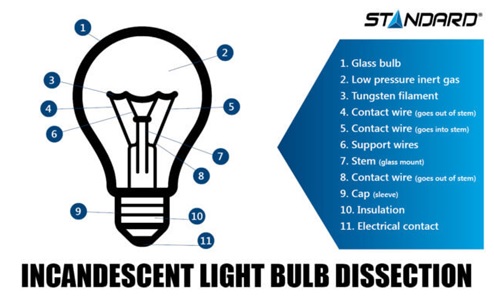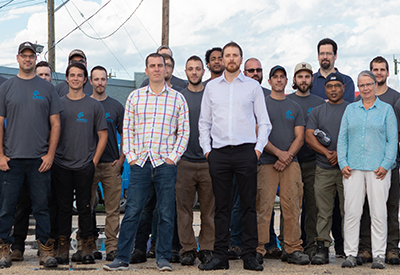Alberta Introduces New Board of Skilled Trades

July 5, 2022
The Skilled Trades and Apprenticeship Education Act has been proclaimed, raising the esteem of apprenticeship education and introducing a new Alberta Board of Skilled Trades.
The act modernizes how designated trades, apprenticeship education and industry training programs are governed, and will serve as a foundation to ensure effective investment in education and training programs. It replaces the Apprenticeship and Industry Training Act and is the largest update of trades and apprenticeship legislation in 30 years.
“The Skilled Trades and Apprenticeship Education Act marks a significant milestone in our commitment to Albertans to expand apprenticeship programs to meet the needs of a 21st century labour force. We have established a board that is dedicated to enhancing the skills of Albertans, forging stronger relationships among institutions and industry, and increasing the parity of esteem with other forms of post-secondary education. This is an exciting time for our post-secondary community, industry and our economic recovery.”
Demetrios Nicolaides, Minister of Advanced Education
“I’m very honoured to be leading this committed group of Albertans who are working to build upon Alberta’s already tremendous reputation for apprenticeship and skills training. This is an exciting time for Alberta’s skilled trades and for industry, and I look forward to the challenging work ahead.”
Ray Massey, chair, Alberta Board of Skilled Trades
Since the act received royal assent on June 17, 2021, additional amendments and regulatory updates have been introduced to reflect extensive engagement with stakeholders and provide for the establishment and administration of apprenticeship education and industry training programs, including the issuance of academic credentials.
The act also establishes the Alberta Board of Skilled Trades and describes its powers and functions, including the ability to make orders and establish committees respecting designated trades. The appointed 15-member board is responsible for advising the Minister of Advanced Education on the direction of Alberta’s designated trades certification system.
The Alberta Board of Skilled Trades will work to fulfil the vision of the Alberta 2030: Building Skills for Jobs Strategy and make the designation of trades and the trades certification system even more responsive to the needs of Albertans and industry.
The new Board of Skilled Trades members include:
- Sheldon Anderson
- Blain Boutin
- Rob Calver
- Paul de Jong
- Caitlin Hartigan
- Ryan Hartman
- Miriam Jordi
- David Kavanagh
- Matthew Lindberg
- Heather MacCullum
- Raymond Massey (chair)
- Carol Moen
- Declan Regan
- Chris Schneider
- Nancy Suranyi
The board and its members are accountable to the Minister of Advanced Education. Biographies of all members are available on the Alberta Board of Skilled Trades website.
The Alberta 2030: Building Skills for Jobs strategy is a transformational vision and direction for Alberta’s higher education system that will develop a highly skilled and competitive workforce, strengthen innovation and commercialization of research, and forge stronger relationships between employers and post-secondary institutions.
Skilled Trades and Apprenticeship Education Act highlights:
Apprenticeship education programs
- The act separates the apprenticeship education and the regulation of skilled trades professionals.
- Apprenticeship education programs can be created without the need for a trade designation, and vice versa. This opens the door for future use of the apprenticeship education model by industries that do not see themselves as a trade and do not require the designated trades framework to regulate the work within their profession.
Designated trades
- Trades can be designated without the need for an apprenticeship education program, and vice versa. This allows professions where an apprenticeship education program does not meet the needs of industry or is not sustainable to continue to benefit from the designated trades certification model regulating that does the work within the scope of the designated trade.
Apprenticeship
- Apprentices can register into an apprenticeship education program with or without a sponsor.
- Any registered apprentice that meets entrance requirements can register for classroom instruction. Apprentices without a sponsor cannot perform the restricted activities within a designated trade that is linked to that apprenticeship education program or receive the on-the-job instruction that would be provided in an apprenticeship education program.
- Current apprenticeship contracts are required to transition to apprenticeship education agreements within 24 months of the act coming into force.
Sponsors
- Sponsors may be employers, consortia of employers, labour organizations, non-profit organizations, and more. This shift can allow more organizations to support apprentices and help apprentices to complete their education in their chosen profession.
- Multiple employers can be used when a single employer cannot provide the full scope of on-the-job instruction for the apprenticeship education program. On-the-job instruction will be strengthened by focusing on mentorship requirements instead of supervision requirements.
- A sponsor ensures apprentices are participating in their education, receiving quality on the-job instruction and assessments required in the apprenticeship education program.
- Apprentices register into an apprenticeship education agreement with their sponsor. Apprenticeship education agreements are replacing contracts of apprenticeship. All on-the-job instruction hours, months and demonstrated competencies recorded on an apprentice’s competency portfolio must be verified and signed off by the sponsor.
Industry training programs
- Industry training programs will provide flexible education options for industry groups where apprenticeship education programs do not meet industry needs. Industry training programs consist mainly of on-the-job learning and may include some form of classroom education provided by an industry designated training provider.
- Completion of an industry training program allows an individual to receive an education credential that recognizes this achievement; however, this credential will not be recognized on the Alberta Credential Framework.

















